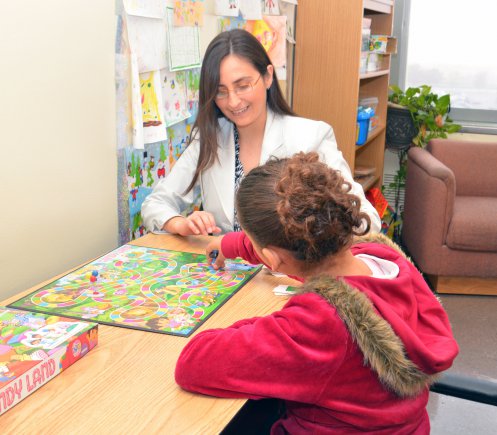This blog follows on from Part 1 where we have been introduced to college & careers counseling. This week, James Bloom continues to explain to us the different types of international school counselors, what they are able to offer schools, and the part they all play in the smooth running of a school.
 2. Emotional & Behavioral Counselors & Therapists: Pay Out & Be Free from Sin
2. Emotional & Behavioral Counselors & Therapists: Pay Out & Be Free from Sin
Whereas college and careers counseling (see part 1) can be learned mainly on the job and involves guiding students and their families in regard to single important decision, emotional and behavioral counseling is a multifarious minefield that requires serious specialized education since children and young people’s psychological, and sometimes physical, well being are at stake. I worked in a half dozen international schools over more than a score of years. Half of them had no social and emotional counselor, whether in house or outsourced. In only one of these three were there different counselors for students of different ages. Would the majority of teachers who work with upper secondary students be well suited or trained to manage an early years or lower primary classroom or vice-versa? Well, the same goes for school counselors or psychotherapists.
Therapy for young children and therapy for older teens are each pursued radically differently by quite different sorts of people with rather different training and personal qualities. Therapy for older children and younger teens is something else again from either of those poles. In international school recruitment ads, one regularly sees listings for ‘whole school social and emotional counselors’. Are you a school proprietor, or board member, or a senior leader hired to act on their behalf, at an international school where families have to pay out large sums in tuition and fees? Then do the decent thing. If you don’t think you need– or rather you can/will not lash out the cash– to offer appropriate counseling in house, then if your school is an Anglophone city, work up a list of good contacts and refer out to experienced, age appropriate therapists in the local area.
If your school is in a country, or a part of the country, where outsourcing counselors or psychotherapists simply isn’t feasible, then do whatever is necessary to convince your paymasters to offer this essential service in house. If this poses a dilemma for you, try asking yourself this: “What if it were my kid who was self-harming, or had an eating disorder, or who’d been a victim of bullying at home or school, or about whom there were concerns regarding sexual abuse from someone somewhere along their brief life line? Then ask, “How would I feel if an administrator at an international school my kid was attending told me, ‘Sorry, we simply don’t have any qualified staff to help deal with that. There just aren’t the funds for it in our budget.’” And then answer yourself, “What a satire, what farce when, in the majority of developed countries, the free state school that kid would be attending if their parents weren’t expats would definitely have such staff!”
 3. Ed-Psychs– Yes, They Do All that Training for a Reason & you Need Their Services
3. Ed-Psychs– Yes, They Do All that Training for a Reason & you Need Their Services
But what about school counselors of the third kind, namely Educational Psychologists? Once again, out of the half dozen international schools where I worked over nearly two dozen years, only one had an Ed-Psych on staff. Actually, there were two in succession, one British and one American. Each brought along her own battery of expensive, complex diagnostic tests for dyslexia, dyscalculia, dyspraxia, dysgraphia, visual processing disorders (VPDs), auditory processing disorders (APDs), ADD, ADHD, and so on and each had an array of techniques to offer to diagnosed students and their teachers. In other words, these people were pros who well and truly knew what they were doing. This does tend to be the case with Ed-Psychs, given that those with a masters level of specialist training have had two to four years additional specialized education, while those with a doctoral level of specialization have had four to six.
Obviously, hiring in someone who has shelled out the time and money to do that tends to cost even more than hiring a top-of-the-payscale teacher. Likewise it will cost a good whack to outsource such a person on a temporary, visiting basis. Alas, for the majority of international schools which do not wish to be burdened with the additional spending incumbent upon educational institutions that admit students who have additional learning needs, but who take tuition fees from the families of said students, the hard truth is that procuring the costly services of an Ed-Psych to correctly diagnose learning deficits, and set out effectual plans for circumventing and surmounting these, is pretty much the sole way to fulfill one’s more easily ignored or denied tacit moral obligations.
Conclusion, or Freedom from Confusion & Exhortation to Do the Right Thing
 Well, there we have it…the three kinds of counselors and psychologists employed in schools do hugely different jobs and schools, or school leaders, with aspirations to being ‘good’ should, in fact, make use of the services of all three. A college and careers counselor may, once in a blue moon, also make a supercallifragilstic accidental psychotherapist or vice-versa; while once in a blood moon, a psychotherapist may perhaps have acquired the expialidocious know-how of an Ed-Psych or vice-versa. However, this is not the usual crescent, half, gibbous, or full lunar status quo and trying to cut corners and save costs by insisting otherwise, or seeking to ignore the whole tripartite support services satellite thing will not redound well upon either you or the school you’re running. So, either hire in all three kinds of counseling and psychology services, or source them out, but be ‘a mensch’ and do one or the other because it’s the only genuinely honorable option.
Well, there we have it…the three kinds of counselors and psychologists employed in schools do hugely different jobs and schools, or school leaders, with aspirations to being ‘good’ should, in fact, make use of the services of all three. A college and careers counselor may, once in a blue moon, also make a supercallifragilstic accidental psychotherapist or vice-versa; while once in a blood moon, a psychotherapist may perhaps have acquired the expialidocious know-how of an Ed-Psych or vice-versa. However, this is not the usual crescent, half, gibbous, or full lunar status quo and trying to cut corners and save costs by insisting otherwise, or seeking to ignore the whole tripartite support services satellite thing will not redound well upon either you or the school you’re running. So, either hire in all three kinds of counseling and psychology services, or source them out, but be ‘a mensch’ and do one or the other because it’s the only genuinely honorable option.
Phew… I am glad we got that sorted. Thanks so much for your expertise James! If you are looking for a counseling job in an international school, we have plenty available. Set up your free profile now, and begin searching our jobs database.




